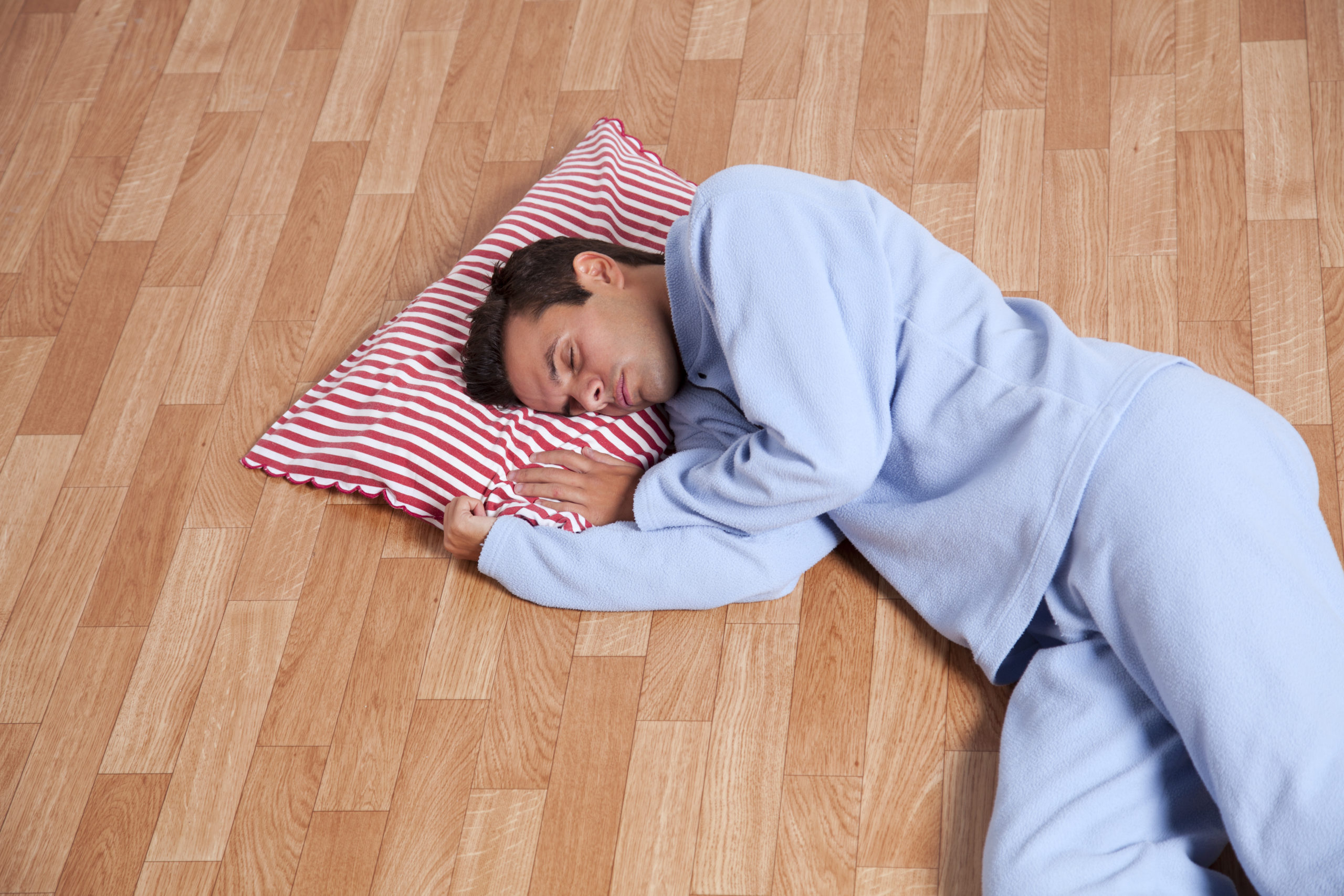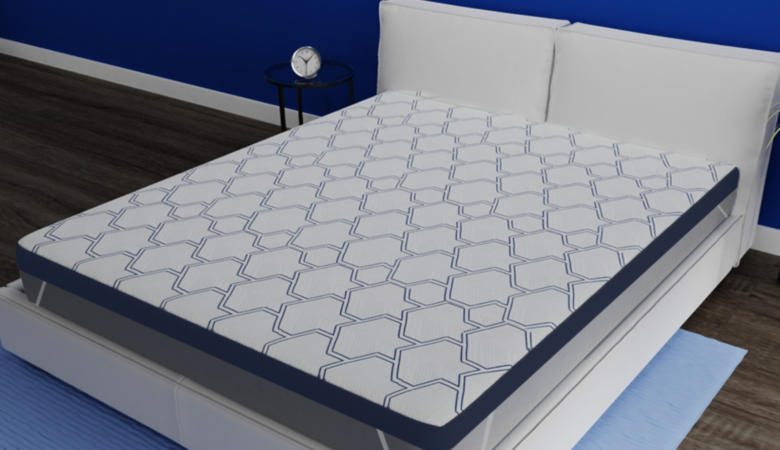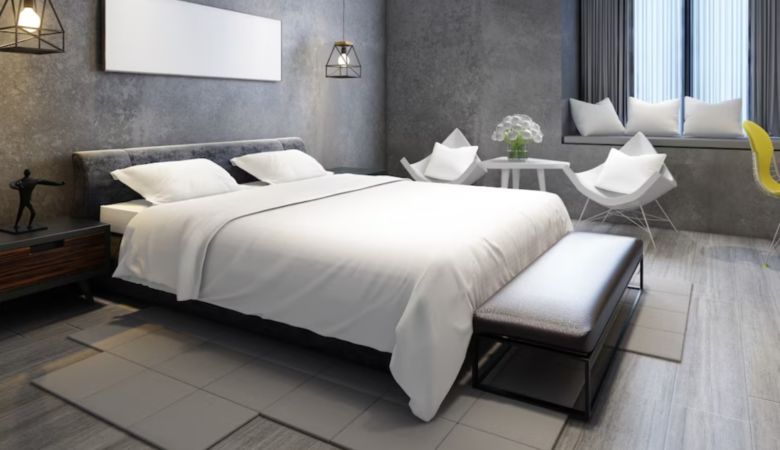Sleeping on the floor might have been normal during the early years of humankind, but there was a reason for the research and development of a mattress. Even the Flintstones, being cavemen, used to sleep on rock beds. While many people nowadays are moving towards switching to sleeping on the floor due to many reasons like- good blood circulation, correcting back pain problems, and feeling cool during hot summers, the research behind the benefits of sleeping on the floor has no scientific backing. All the benefits are purely anecdotal. Even so, let’s explore the advantages and disadvantages of floor sleeping, and decide for ourselves.
Advantages of sleeping on the floor
Helps with back pain
While there is no scientific evidence to support the advantages of sleeping on the ground for back pain, some floor sleepers say that the floor’s rigidity keeps their spines aligned and relieves shoulder tension. This argument is most prevalent when comparing the ground with mattresses that are too soft. If your mattress is just too soft, your spine can curve inwards and be out of alignment, resulting in increased back pain. That being said, if you wish to alleviate back pain, you may want to first consider performing some yoga for sleep to assist you to decompress and acquire the ability to hit the pillows before deciding to sleep on the ground.
Keeps you cool
When the heat rises, sleeping on the floor or closer to the ground can make you feel cool and temperatures tend to be a bit lower at the bottom. However, you can now avail the advanced technology of cooling mattresses that are designed with perforations to manage your temperature. These help you sleep cool on a mattress without the necessity to sleep on the ground. Livpure Sleep’s cooling mattresses are cooler than any mattress you have slept on.
Makes blood circulation better
When you sleep on the ground, your weight is distributed evenly. This could help improve your blood circulation, allowing your heart, lungs, and muscles to function effectively. However, it’s important to notice that floor sleeping may be bad for people with blood circulation issues like anemia or diabetes because the floor can get too cold.
Disadvantages of sleeping on the floor
There is a reason someone invented the concept of the mattress and the people never looked back upon the history of floor sleeping. There are several disadvantages to sleeping on the floor.
Uncomfortable
One of the obvious drawbacks of sleeping on the ground is how uncomfortable it is often. When you adjust to a comfy mattress for a long time, switching to sleeping on the ground can lead to a feeling like an unwanted camping trip that went on for too long and your sleep worsens. With the dearth of cushioning on the ground, you would possibly be up looking at the fan more often than you would like. While some report the soothing benefits of sleeping on the ground, it’s definitely not going to be worth the soreness of the joints over time.
Might make back pain worse
Is sleeping on the ground bad for your back? While some people report that sleeping on the ground can worsen their back pain, there is not much evidence on this subject. If you feel like your back is hurting from your mattress, it should just be that your mattress is just too soft or not a right fit for you. To buy the mattress that is the perfect fit for you, you need to first note your concerns and then find the one mattress that will remedy them. Livpure mattresses come with a 100-night risk-free trial just so that you only invest in a perfect mattress for you and not waste your hard-earned money.
Can worsen allergies
If you suffer from bedroom allergies, sleeping on the ground might not be the brightest idea. Your floor takes plenty of wear and tear and tear, collecting dust, dirt, mites, and skin cells throughout the day which will result in allergies at nighttime. People who consistently sleep on the ground might even see a rise in allergy symptoms.
Can become too cold for cool sleepers
While it may be advantageous during the hot Indian summer months, sleeping on the ground during the winter means you may be too cold for comfort, resulting in disrupted, restless sleep. You will even be more prone to catching a cold.
Can cause restlessness
Sleeping on the ground can take time to get accustomed to. Some people may never get accustomed to it. If you would like to get an extended deep sleep, consider first correcting your bedtime habits and choice of mattress and pillows before making the change to the ground.
Final thoughts on sleeping on the floor
Sleeping on the ground is clearly not meant for everybody. We have got attuned for many years to sleep on a comfortable bed after a long day and waking up into it. One perk of sleeping on the ground is that you just don’t desire to hit snooze 9 times when the alarm bursts to wake you up. Floor sleepers mention that they rise and find ready for the day easily. But that doesn’t mean sleeping can be a smooth ride on the floor.
Sleeping on the ground does seem to alleviate back pain for many. This suggests that a firmer surface will help keep your spine and back in a neutral position and ease the pain. Maybe it’s time to check the firmness of your mattress If you are experiencing back pain and haven’t had an injury or specific reason for it. Your mattress could also be the cause. If sleeping on the ground isn’t appealing to you, verify getting a firmer mattress to alleviate your back pain symptoms. Livpure Sleep’s OrthoX mattress is the perfect candidate for this. It combines cool-gel memory foam and density support foam for ideal back support. For some folks, the comfort of our cushy mattresses and soft pillows are a few things we are simply not willing to part with, and some of us simply cannot. So, sleeping on the floor is really a personal choice.








